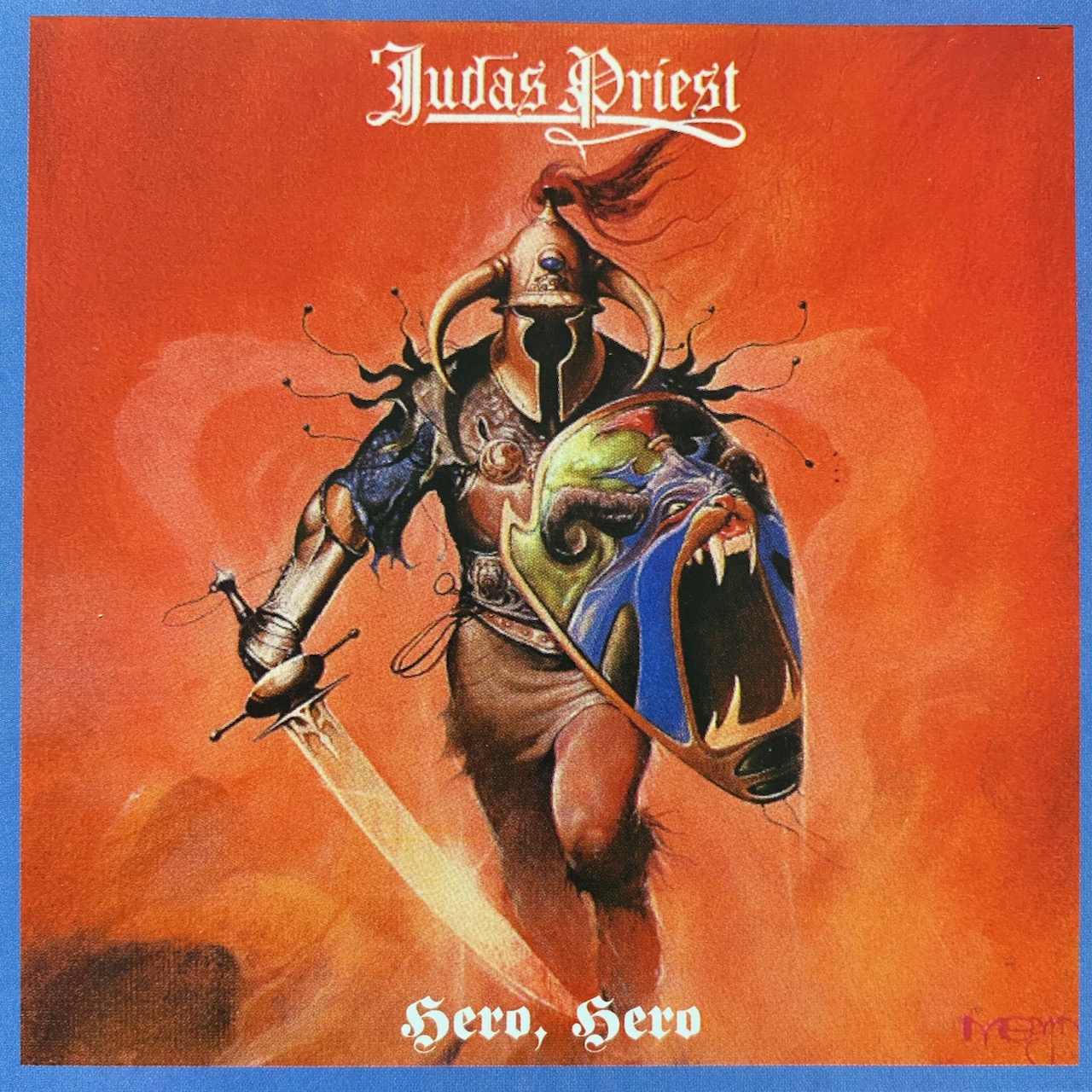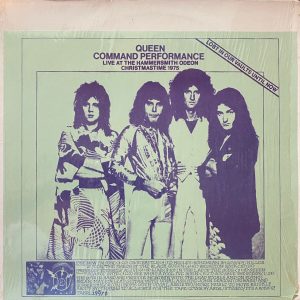
Judas Priest – ‘Hero, Hero’ (1981) – Album Analysis
In a move that has become emblematic of the music industry’s tactics, Judas Priest’s humble beginnings with Gull Records took a sharp turn as the band gained popularity in the early 1980s. Following their success with ‘British Steel’ in 1980, the label capitalized on their ascent by releasing a greatest hits compilation titled ‘Hero, Hero’ in 1981. This collection draws tracks from the band’s first two albums, featuring all of ‘Rocka Rolla’ from 1974 and a selected six songs from ‘Sad Wings of Destiny’ from 1976.
What’s particularly notable about this compilation is the 1981 remix of ‘Rocka Rolla’ by Rodger Bain, along with the included song ‘Diamonds and Rust.’ However, my CD version, a re-issue from Koch Records, presents the original recordings of ‘Rocka Rolla’ instead of these remixed versions, offering a different experience that may disappoint collectors. Nevertheless, the remix of ‘Diamonds and Rust’ remains intact. The tracklist here is reshuffled compared to the original albums, featuring the classic lineup of Rob Halford, K.K. Downing, Glenn Tipton, and Ian Hill, with drummers John Hinch and Alan Moore making contributions.
The opening track, “Prelude,” is an instrumental piece that strangely does not lead into the following track, “Tyrant.” This baroque stylization, while featuring piano and tom-tom drums, comes off as somewhat unnecessary. Now, “Tyrant” is where the album truly kicks off, showcasing a powerful riff and an explosion of energy that defines the essence of heavy metal. Halford’s vocals are thunderous, and the dynamic interplay between Downing and Tipton’s guitar work is nothing short of iconic.
“Rocka Rolla” shifts the vibe with an upbeat tempo and includes several engaging solos. Halford even throws in some harmonica for good measure, making it a standout track. “One for the Road,” composed by Halford and Downing, channels classic ’70s rock vibes, blending a bit of Sabbath and Deep Purple influences, with Halford’s impressive vocal range soaring above the instrumentation.
In contrast, “Victims of Changes,” an almost eight-minute epic penned by Halford, Downing, Tipton, and Al Atkins, displays a complex structure and numerous rhythm shifts. It expertly maintains listener interest throughout its duration, particularly with Halford’s falsettos culminating in a climactic scream considered legendary in rock history.
However, not every track hits the mark. “Dying to Meet You” falters with a solemnity that feels misaligned with Halford’s typical vocal prowess. Yet, it leads into “Hero, Hero,” the title track, which serves as a hidden gem that reinvigorates the album’s flow with its classic rock sound and energetic vocals.
“Never Satisfied” presents an intriguing blend of Zeppelin influences, showcasing Halford’s vocal range and grit against a backdrop of powerful guitar riffs. The ballad, “Dreamer Deceiver,” offers a slower pace that retains the album’s bluesy metal feel, leading into the contrasting track “Deceiver,” which leans towards speed metal.
The subsequent suite, “Winter,” “Deep Freeze,” and “Winter Retreat,” demonstrates a more progressive approach. While “Winter” evokes a darker mood akin to Sabbath, the final part, “Winter Retreat,” becomes a curious experiment that shifts tones and tempos rather abruptly.
“Cheater” brings back the bluesy hard rock infusion, highlighted by an infectious riff and classic rock elements that resonate with many fans. The cover of Joan Baez’s “Diamonds & Rust” is a striking reinterpretation, showcasing Halford’s vocal talent to transform this folk classic into a heavy metal performance.
Next is “Run of the Mill,” a lengthy composition that explores profound themes about life decisions, reinforced by Halford’s evocative lyrics and strong guitar work. “Genocide” channels aggression reflective of its controversial lyrics, reaching a frenzied conclusion that leaves listeners breathless.
The concluding instrumental piece, “Caviar and Meths,” co-written by Atkins, Downing, and Hill, is noticeably brief and fails to deliver significant development within its short runtime. Live performances, however, suggest that this track could stretch to 14 minutes of a more elaborate experience.
In summary, ‘Hero, Hero’ offers listeners a glimpse into the formative years of Judas Priest, harboring some impressive tracks yet often feeling like a collection designed more for commercial reasons than musical necessity. If you’re an avid collector, the inclusion of some remixed tracks like ‘Diamonds and Rust’ might justify the purchase, but it’s undoubtedly a compilation aimed at capitalizing on the band’s burgeoning fame.
My final verdict? A solid 3.0 out of 5.0 stars. It serves as an interesting piece for those keen on observing the band’s evolution, despite its underlying feeling of being an unnecessary cash grab at the time. And here’s a fun fact: the album cover for ‘Hero, Hero’ was also used for the Kiss bootleg titled ‘Barbarize,’ adding an extra layer of intrigue for collectors.






